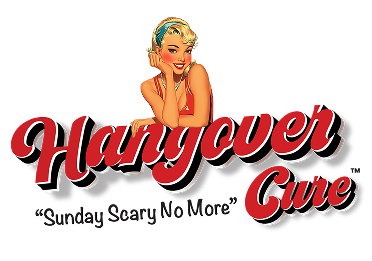
Is a Hangover Just Dehydration?
Share
The Common Misconception About Hangovers and Dehydration
Why People Think Hangovers Are Just About Water Loss
Many believe that hangovers result solely from dehydration. Since alcohol is a diuretic, it increases urine production, leading to fluid loss. As a result, people associate symptoms like headaches, fatigue, and dizziness with dehydration. While dehydration does play a role, it’s only one part of the bigger picture.
The Truth: Hangovers Are More Complex
Hangovers are caused by a combination of factors, including alcohol metabolism, immune system responses, blood sugar fluctuations, and sleep disruption. Simply drinking water won’t eliminate all hangover symptoms because dehydration isn’t the sole culprit.
Understanding What Actually Causes a Hangover
Alcohol Metabolism and Acetaldehyde Buildup
When you drink alcohol, your liver processes it into acetaldehyde, a toxic byproduct responsible for nausea, headaches, and general malaise. This compound is more toxic than alcohol itself and contributes significantly to hangover symptoms. The body eventually breaks acetaldehyde into acetate, which is less harmful, but this takes time.
Inflammation and Immune System Response
Alcohol triggers an inflammatory response in the body. This inflammation can cause body aches, fatigue, and cognitive fog, similar to the symptoms of mild illness. The immune system’s reaction is a key reason why hangovers feel so exhausting.
Blood Sugar Drops and Fatigue
Drinking alcohol can lower blood sugar levels, leading to dizziness, weakness, and mood swings. The body uses stored glucose for alcohol metabolism, depleting energy reserves and contributing to hangover-related fatigue.
Sleep Disruption and Brain Fog
Alcohol negatively impacts REM sleep, the most restorative sleep cycle. Even if you sleep for a full night after drinking, you might still wake up feeling groggy, disoriented, and unrested.
Why Hydration Alone Isn’t Enough for Hangover Recovery
Rehydration Helps, But It Won’t Eliminate a Hangover
Drinking water is crucial for recovery, but it won’t remove acetaldehyde, reduce inflammation, or stabilize blood sugar levels. Hydration alone addresses some symptoms, but a full recovery requires more comprehensive care.
Learn more about hangover headache
The Role of Electrolytes in Hangover Recovery
Electrolytes like sodium, potassium, and magnesium help maintain fluid balance and support nerve function. Drinking electrolyte-rich fluids like coconut water or sports drinks replenishes these essential nutrients faster than plain water.
The Need for Nutrients and Antioxidants
Vitamins B and C, along with amino acids and antioxidants, help the body break down alcohol byproducts, reduce oxidative stress, and restore energy levels. A proper hangover recovery plan includes nutrient-dense foods and targeted supplements.

Effective Strategies to Recover from a Hangover
Drink Electrolyte-Rich Fluids
Rehydration is key, but opt for beverages that replenish lost electrolytes, such as:
- Coconut water – A natural electrolyte booster.
- Sports drinks – Contain sodium and potassium to restore balance.
- Hangover Cure products – Specifically designed to support hydration and recovery.
Eat a Nutrient-Dense Breakfast
A balanced meal can help stabilize blood sugar and replenish lost nutrients. Great food choices include:
- Eggs – Contain cysteine, which helps break down acetaldehyde.
- Bananas – High in potassium to restore electrolyte balance.
- Whole grains – Provide complex carbohydrates for sustained energy.
Take a Hangover Supplement
Hangover Cure contains a mix of essential vitamins, minerals, and antioxidants that support alcohol detoxification and accelerate recovery.
Get Proper Rest and Avoid More Alcohol
Sleep is one of the most effective ways to recover from a hangover. While the "hair of the dog" method (drinking more alcohol) might delay symptoms temporarily, it ultimately prolongs the recovery process.

Frequently Asked Questions About Hangovers and Dehydration
Can drinking water prevent a hangover?
While staying hydrated can lessen some symptoms, it won’t prevent a hangover entirely because alcohol impacts multiple bodily systems beyond fluid loss.
Why do some people get worse hangovers than others?
Factors like genetics, alcohol tolerance, hydration status, and what you eat before drinking all influence hangover severity.
What is the fastest way to feel better after drinking?
Hydration, electrolyte replenishment, nutrient intake, and rest are the most effective ways to recover quickly. Hangover Cure supplements can also help speed up the process.
Why Choose Hangover Cure for Faster Recovery?
Replenishes Essential Nutrients
Hangover Cure is packed with vitamins B and C, along with essential minerals to restore energy levels and support metabolism.
Supports Liver Detox and Reduces Inflammation
Ingredients like milk thistle and ginger help detoxify the liver and reduce hangover-related inflammation.
Combines Hydration with Antioxidants for Full Recovery
Unlike plain water, Hangover Cure products contain electrolytes, amino acids, and antioxidants to combat hangover symptoms more effectively.
Conclusion
While dehydration is a factor in hangovers, it’s not the only cause. Alcohol metabolism, inflammation, blood sugar drops, and sleep disturbances all contribute to the unpleasant symptoms. Recovering effectively requires a holistic approach that includes hydration, electrolyte replenishment, proper nutrition, and rest.
Try Hangover Cure Today!
Struggling with a hangover? Try Hangover Cure for complete recovery beyond just hydration!

